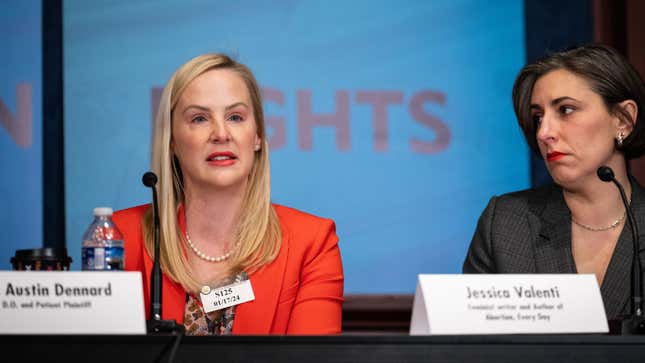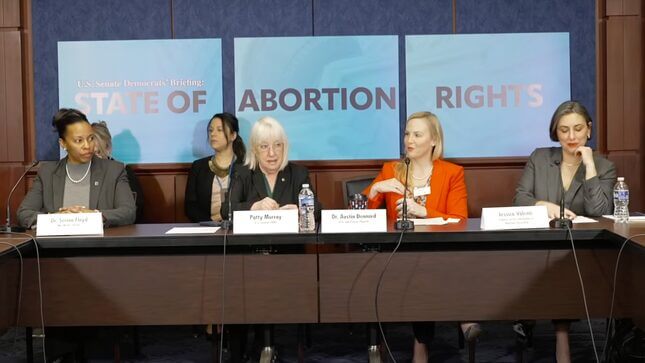Doctors Say Patients Are Scared to Ask Basic Pregnancy Questions in Chilling Senate Briefing
Abortion bans across the U.S. have created such menacing legal risks that patient-provider relationships have fundamentally changed.


On Wednesday, Democratic senators hosted a briefing featuring testimony from two abortion providers and feminist author Jessica Valenti about the lived toll of abortion bans nearly 1.5 years after the Supreme Court overturned Roe v. Wade—and just before the 51st anniversary of Roe next week. At one point, Sen. Elizabeth Warren (D-Ma.) asked Dr. Austin Dennard, a Texas-based OB/GYN who was denied an emergency abortion in 2022 after Roe fell, whether Dennard agrees with Republican claims that “the consequences of the Supreme Court’s decision are overblown.” Dennard, who’s been directly impacted by Texas’ abortion laws as both a patient and health care provider, responded that the consequences of abortion bans have spiraled beyond what most of us could fathom, particularly where medical privacy is concerned.
Patients, she explained, are afraid to ask basic questions about pregnancy and their health out of fear that they or their doctors could face criminal charges. (Texas’ abortion ban threatens providers who violate the law with the possibility of life in prison and $100,000 in fines.) “The amount of fear that is induced now for individuals who are considering pregnancy, considering growing their families, who come to my office—even if it’s an annual exam just for a routine checkup—with questions, means some of them are too afraid to even ask me what their rights are,” Dennard said. “Because they fear putting me in a litigious situation. So, you don’t even get the medical care you need. You can’t even ask questions of your doctor for fear that either you’ll be at legal risk, or you’ll put your doctor at legal risk.”
Dennard, who is also a plaintiff in an ongoing lawsuit demanding that the state of Texas clarify the medical emergency exception in its abortion ban, added that “the most intimate moments are between a physician—an OBGYN specifically—and their patient talking about their bodies and their life.” But now, “it’s as if someone’s standing in my office room telling us what we can and cannot talk about.”
-

-

-

-

-

-

-

-

-

-

-

-

-

-

-

-

-

-

-

-

-

-

-

-

-

-

-

-

-

-

-

-

-

-

-

-

-

-

-

-









































